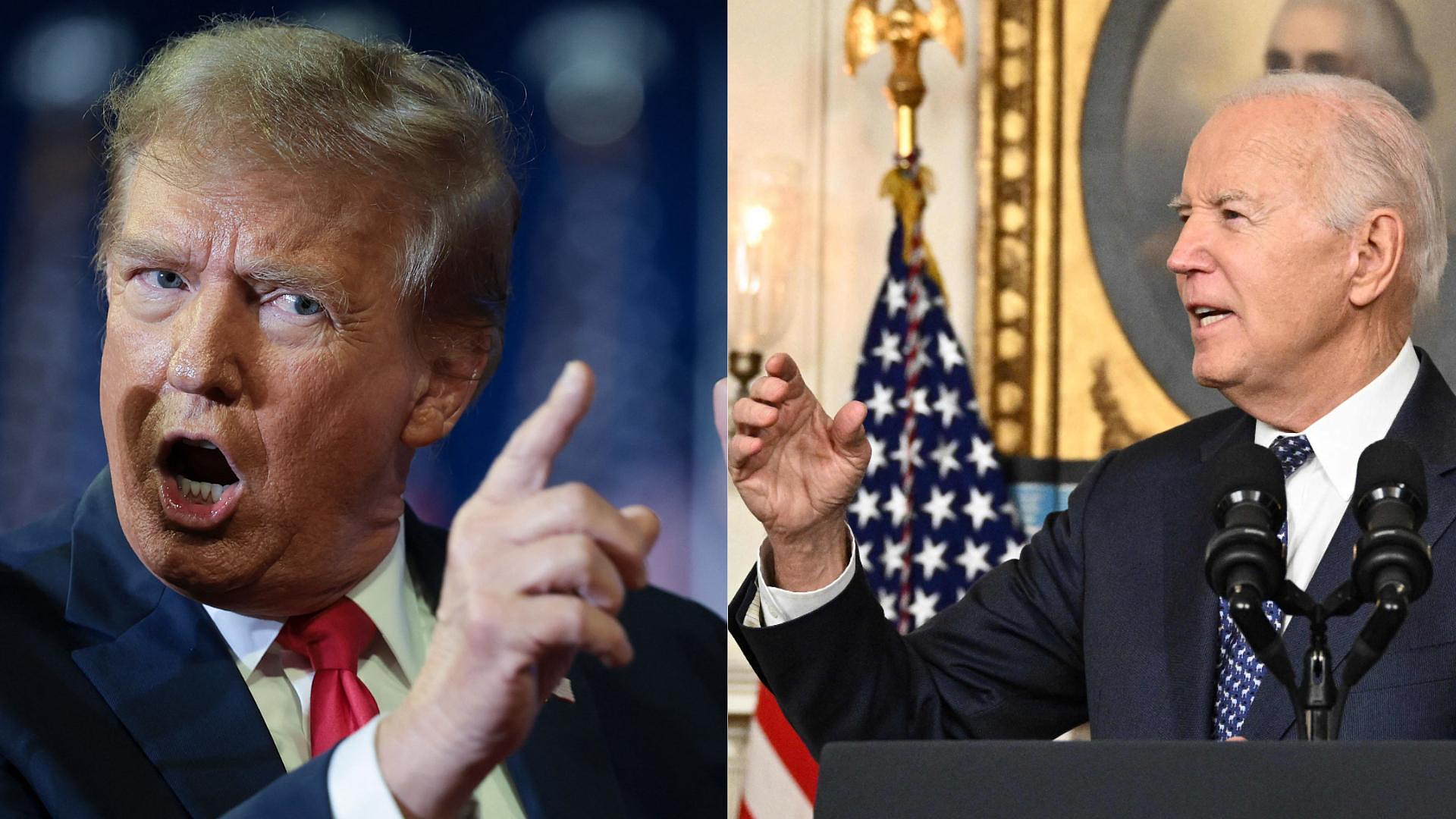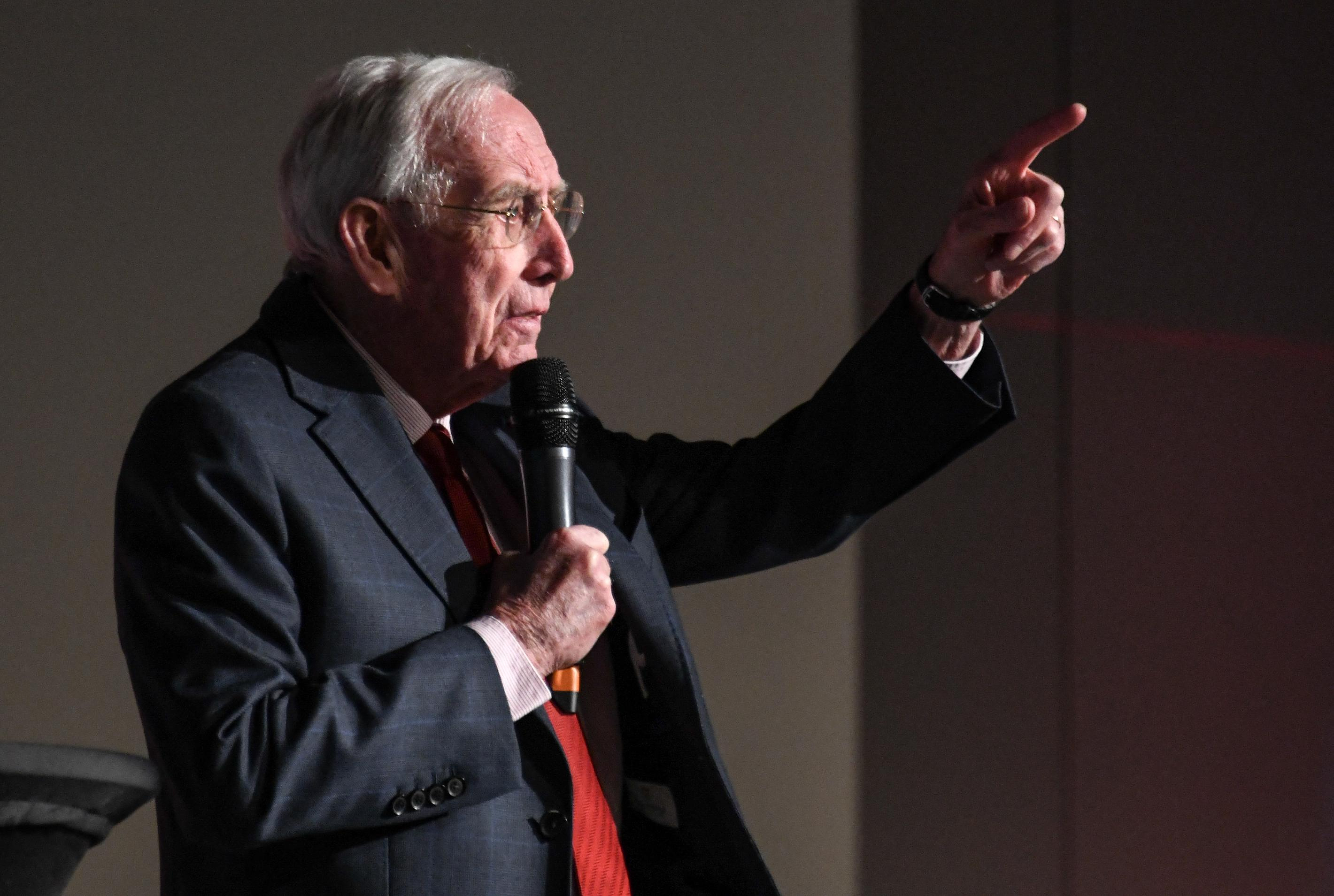This year, “Super Tuesday” may not be very exciting. In all likelihood, Donald Trump and Joe Biden will emerge victorious from the most important day of the American primaries. Their inauguration to wear the colors of the GOP and the Democratic Party in the presidential election will therefore be nothing more than a health journey.
“Super Tuesday” is the decisive stage in the selection of candidates for the presidential election. These are designated by delegates from the “GOP” and the Democratic Party. Each state votes to designate these delegates during a caucus, in which only activists participate, or in a primary during which everyone can vote. “Super Tuesday” is decisive because a large number of states vote on that day. In 2024, there will be fifteen of them. More than a third of the delegates are at stake, 874 on the Republican side and 1,420 on the Democratic side. It is commonly accepted that candidates who win “Super Tuesday” win the nomination to compete in the presidential election. There has never been a counterexample.
For Jean-Eric Branaa*, lecturer at Paris II University and specialist in the United States, we could almost speak of “Super Month of March”, since the majority of ballots take place this month. Next Tuesday, four states vote (simultaneous Democratic and Republican primaries in Georgia, Mississippi and Washington; Republican caucus in Hawaii) and five more the following Tuesday, the 19th (primaries in Arizona, Florida, Illinois , Kansas and Ohio).
Also readAudiences, subscriptions... Donald Trump is no longer the savior of the American media
“Super Tuesday” is a relatively recent electoral practice, since it gradually emerged in the 1980s. The first occurrence dates from the 1984 campaign, won by Ronald Reagan. For three weeks, three “Super Tuesdays” in five states each are then organized. “The objective is to bring out serious candidates,” explains Anne Deysine**, professor emeritus at Paris-Nanterre and specialist in the United States. Those who will have the financial resources to pay for planes and political advertisements and campaign in fifteen states at once.
“This process was necessary because it proved very favorable for each of the parties,” adds Jean-Eric Branaa. “Super Tuesday” allows both to kill the match internally and to create momentum for the designated candidate.” By this quasi-designation of a candidate, the parties in fact reduce the risks of internal division. “I bet that Nikky Haley (Donald Trump's competitor for the nomination of the Republican Party - Editor's note) will withdraw in the end, Jean-Eric Branaa wants to believe. The Republican Party would have an interest in it: it only has feathers to lose by leaving in the race a candidate who takes aim at Trump.”
At the beginning of 1992, Bill Clinton was on a very poor path to winning the nomination. The Democratic Party candidate has failed in most previous primaries. But everything changes with “Super Tuesday”. On March 10, Bill Clinton won this major election, which ultimately allowed him to be nominated by the left and win the White House. “The 1992 episode made “Super Tuesday” a legend,” concludes Anne Deysine.
“Super Tuesday” in 2008 was also a landmark due to its exceptional scale. That year, 24 states – almost half – voted on the same day. Everyone then used their superlative to designate this major electoral event: we spoke of “Super Mega Tuesday”, “Tuesday of Destiny”, or even “Tsunami Tuesday”.
No real suspense for this “Super Tuesday” 2024. On the Republican side, former President Donald Trump is the ultra-favorite. The billionaire has won all previous elections, with the exception of Washington D.C., and already has 247 delegates out of the 1,215 needed to be invested.
The former president's legal problems should not prevent him from being nominated. “Only two really threaten Trump,” analyzes Jean-Eric Branaa. That of the top secret documents kept in his Florida residence and that of a possible coup attempt during the storming of the Capitol. Both are postponed indefinitely.” As for Nikki Haley, his latest GOP competitor, her chances are more than slim. A loser in every state, she only won Washington D.C. and was already beaten everywhere else, even in South Carolina where she was governor.
On the Democratic side, the nomination of Joe Biden will be a formality. The outgoing president could reach, or at least get closer to, the 1,968 delegates needed to win. His competitors, Minnesota elected official Dean Phillips and writer Marianne Williamson, are already far behind him. “The victories of Trump on the Republican side and of Biden on the Democratic side are certain,” insists Anne Deysine from the outset.
*Jean-Eric Branaa is the author of Geopolitics of the United States (PUF, 2022).
** Anne Deysine is the author of The United States and Democracy (Paperback, 2019).

 Poland, big winner of European enlargement
Poland, big winner of European enlargement In Israel, step-by-step negotiations for a ceasefire in the Gaza Strip
In Israel, step-by-step negotiations for a ceasefire in the Gaza Strip BBVA ADRs fall almost 2% on Wall Street
BBVA ADRs fall almost 2% on Wall Street Ukraine has lost 10 million inhabitants since 2001... and could lose as many by 2050
Ukraine has lost 10 million inhabitants since 2001... and could lose as many by 2050 Sánchez cancels his agenda and considers resigning: "I need to stop and reflect"
Sánchez cancels his agenda and considers resigning: "I need to stop and reflect" The Federal Committee of the PSOE interrupts the event to take to the streets with the militants
The Federal Committee of the PSOE interrupts the event to take to the streets with the militants Repsol: "We want to lead generative AI to guarantee its benefits and avoid risks"
Repsol: "We want to lead generative AI to guarantee its benefits and avoid risks" Osteoarthritis: an innovation to improve its management
Osteoarthritis: an innovation to improve its management Ukraine gets a spokesperson generated by artificial intelligence
Ukraine gets a spokesperson generated by artificial intelligence The French will take advantage of the May bridges to explore France
The French will take advantage of the May bridges to explore France Organic flour contaminated by a recalled toxic plant
Organic flour contaminated by a recalled toxic plant 2024 Olympics: Parisian garbage collectors have filed a strike notice
2024 Olympics: Parisian garbage collectors have filed a strike notice Death of Paul Auster: Actes Sud says he is “lucky” to have been his publisher in France
Death of Paul Auster: Actes Sud says he is “lucky” to have been his publisher in France Lang Lang, the most French of Chinese pianists
Lang Lang, the most French of Chinese pianists Author of the “New York Trilogy”, American novelist Paul Auster has died at the age of 77
Author of the “New York Trilogy”, American novelist Paul Auster has died at the age of 77 To the End of the World, The Stolen Painting, Border Line... Films to watch this week
To the End of the World, The Stolen Painting, Border Line... Films to watch this week Omoda 7, another Chinese car that could be manufactured in Spain
Omoda 7, another Chinese car that could be manufactured in Spain BYD chooses CA Auto Bank as financial partner in Spain
BYD chooses CA Auto Bank as financial partner in Spain Tesla and Baidu sign key agreement to boost development of autonomous driving
Tesla and Baidu sign key agreement to boost development of autonomous driving Skoda Kodiaq 2024: a 'beast' plug-in hybrid SUV
Skoda Kodiaq 2024: a 'beast' plug-in hybrid SUV The home mortgage firm rises 3.8% in February and the average interest moderates to 3.33%
The home mortgage firm rises 3.8% in February and the average interest moderates to 3.33% This is how housing prices have changed in Spain in the last decade
This is how housing prices have changed in Spain in the last decade The home mortgage firm drops 10% in January and interest soars to 3.46%
The home mortgage firm drops 10% in January and interest soars to 3.46% The jewel of the Rocío de Nagüeles urbanization: a dream villa in Marbella
The jewel of the Rocío de Nagüeles urbanization: a dream villa in Marbella Europeans: a senior official on the National Rally list
Europeans: a senior official on the National Rally list Blockade of Sciences Po: the right denounces a “drift”, the government charges the rebels
Blockade of Sciences Po: the right denounces a “drift”, the government charges the rebels Even on a mission for NATO, the Charles-de-Gaulle remains under French control, Lecornu responds to Mélenchon
Even on a mission for NATO, the Charles-de-Gaulle remains under French control, Lecornu responds to Mélenchon “Deadly Europe”, “economic decline”, immigration… What to remember from Emmanuel Macron’s speech at the Sorbonne
“Deadly Europe”, “economic decline”, immigration… What to remember from Emmanuel Macron’s speech at the Sorbonne These French cities that will boycott the World Cup in Qatar
These French cities that will boycott the World Cup in Qatar Top 14: Fijian hooker Narisia leaves Racing 92 and signs for Oyonnax
Top 14: Fijian hooker Narisia leaves Racing 92 and signs for Oyonnax Europa League: Jean-Louis Gasset is “wary” of Atalanta, an “atypical team”
Europa League: Jean-Louis Gasset is “wary” of Atalanta, an “atypical team” Europa League: “I don’t believe it…”, Gasset jokes about Aubameyang’s age
Europa League: “I don’t believe it…”, Gasset jokes about Aubameyang’s age Foot: Rupture of the cruciate ligaments for Sergino Dest (PSV), absent until 2025
Foot: Rupture of the cruciate ligaments for Sergino Dest (PSV), absent until 2025
















